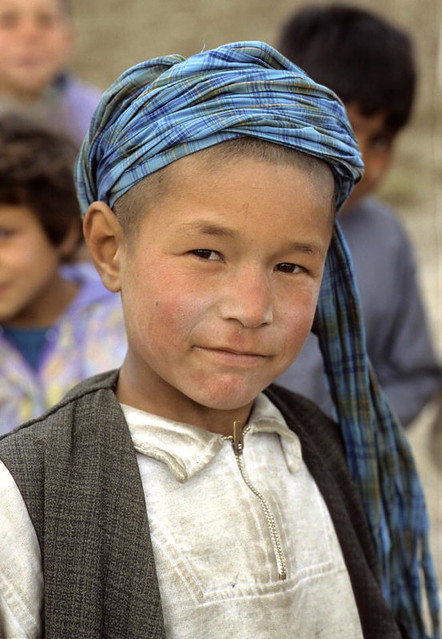Man moves. Without migration, the history of mankind would have been a blip in the Pleistocene epoch, and the epoch would not have that name. And yet, once we settled, subsequent migration has always brought conflict in its wake. Once a people get attached to a piece of land, they take to seeing all who arrive after them as usurpers. The attitude is familiar to anyone who has as a child fought over a trifle - invariably one side cites the fact that they found or used it first as a pre-emptive trump.
It is not saying anything new to remark that in post-millennium political landscapes in all parts of the world, political constituencies thrive on taking and propagating that myopic view of migration and immigrants. In some cases though, the pairing of the complaining destination population and the group of hopeful new arrivals is pregnant with irony.
Germany, just as other countries in Western and Northern Europe continues to see
polarising discourse on immigration, assimilation, integration, ‘
multiculturism’ and other sundry ‘-tions’ and ‘-isms’. Not everyone uses so many words, but the conflicting sides each stem from set worldviews concerning expectations, responsibilities, prejudice, promises, roles, culture and every such thing.
The debate descends into a chicken-and-egg stalemate. In the case of Germany and Turkey though, to speak to those who know only the language of who-saw-it-first, one only need look further back in time to stumble across shudder-inducing irony. Overwhelming DNA evidence is
now confirming a picture of early migration in the region. All indications are, that not only are a majority of modern Europeans descended from a wave of new arrivals (c. 7000 years ago) from Anatolia who dominated the earlier indigenous population, those arrivals also brought with them the knowledge of farming. Listen to the narrative as told with a view of current borders: agriculture came to Germany with Turkish immigrants, who then settled there and replaced much of the then hunting-gathering population of Germany.

|
The Face of (Wildebeest) Migration (in Profile)
Photo by Ganesh Raghunathan, under Creative Commons Licence via Flickr |
Another face-scratchingly gigantic irony lurks in the fears that Chinese immigrants uniquely inspire in the West. When I read of the widespread notion that the China’s rapid progress is built on top of technological secrets
stolen from university research labs and
replicated back home, I sigh. The concerned suspicion not only extends to
tuition-paying students that
universities need, but transfuses prejudice to much larger contexts. Consider this from an
article in Foreign Policy: “
The Chinese are still busy copying technologies we built over the past few decades. They haven't cracked the nut on how to innovate yet.” The language that another commentator
uses in the Business Insider to counter that view is, if anything, even more telling: “
Does anyone in their right mind think the Chinese people are any different than the Japanese or any other human society? Don’t worry. The Chinese will ‘crack the nut’ too.” Future tense.
I sigh because I seem the only one to remember from primary school when I was taught a long list of inventions that took longer to make their way from the Chinese heartland to the rest of the world which then marvelled at how they ever managed without those gadgets for centuries. I am weaker than the temptation to reproduce the list in part. The enterprising folk invented: the flush-toilet, porridge, printing, brandy, bells, whiskey, wheelbarrows, kites, compasses, crossbows, calendars, oil drilling, fishing rod, whips, helicopters, mechanical clocks, hot air balloons, parachutes, the iron plough, relief maps, suspension bridges, umbrellas, water pumps, seismographs, and arguably
many more such besides the more commonly known silk, paper, abacus, gunpowder/fireworks/matches and, of course, china (ceramics). Talk about freeloading, violating patents and piggy-backing your technological revolutions in the distant wake of pioneers!

|
| Diagram of a Ming dynasty mariner's compass |
| via Wikimedia Commons |
Yes, property rights were codified much later and intellectual property recognised as such relatively recently, but that does not detract from the fact that the timing was more convenient for some regions than others. The concept of stealing has been doubtless known to mankind ever since we fought over scarce meat that a few had hunted for many. Any ancient society could have prevented the stealth of ideas - penalties were much more deterring back then. That it did not occur to them is a sign of virtue. Imagine trying to assess today the benefits of learning of farming or paper just a bit earlier from a foreign visitor.
Patterns of migration often show complex interdependencies and cross-flux of values, with the new arrivals sometimes bringing in priceless wealth of knowledge and ideas that may help the receiving population leap-frog great strides on the path of human progress. Irony aside, the moral is that migration, much like travel, is good for innovation and progress. People meeting new people is like fertility treatment for the
birth of ideas. Peace-time movement is rarely the same as a horde of have-nots invading upon a group of gullible haves, sneaky alien parasites leeching off every last drop of the bounty that attracted them. If we must look to population interaction in nature rather than history to shape our expectations for human societies, parasitism is a curious pick from a whole continuum of cases. Symbiotic organisms depend on the mutual benefits and often co-evolve into fitter forms. Many parasites do the host no discernible harm. Think of your school days when the word 'bacteria' put you in mind of fearsome disease-inducing pathogens. Whereas we now know that human physiology would be inconceivable without the trillion
bacteria we host. Imagine a bag of skin that carries far more bacterial DNA than the human kind viewing an approaching bacterial colony with prejudiced suspicion.








